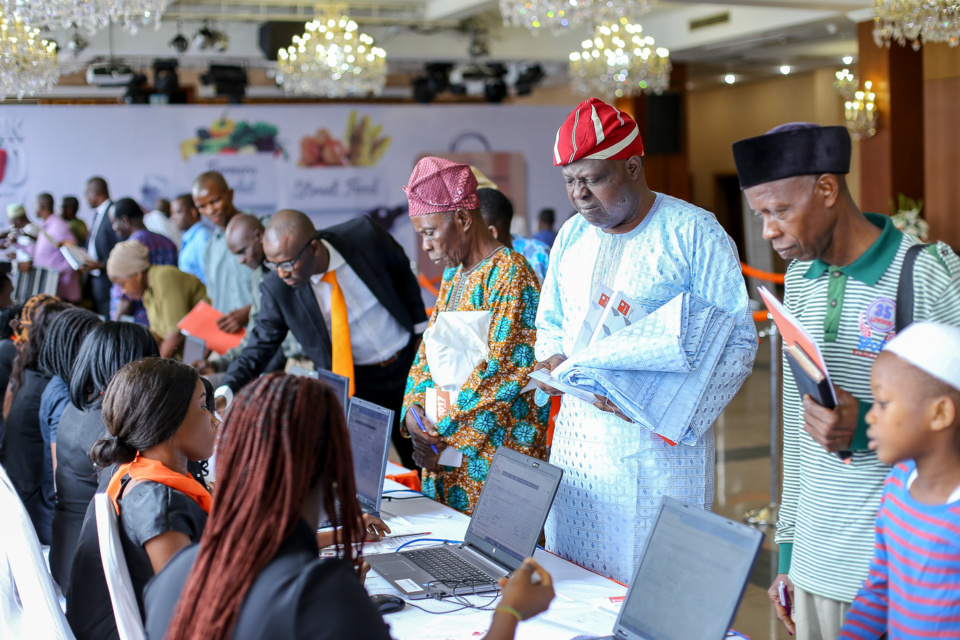On Thursday, Innoson Ltd tweeted that the Supreme Court of Nigeria struck off the ‘motion for stay’ filed by Guaranty Trust Bank (GTB) while ordering it to pay the sum of ₦14 billion to Innoson Motors’ CEO in the next 14 days.
Today, 7th of June 2018, The Supreme Court struck out @gtbank ’s motion for stay of execution of the Enugu Court of Appeal Division’s order that @gtbank pays over N6 Billion into an interest yielding account at the Court of Appeal.
— Innoson Vehicles (@innosonvehicles) June 7, 2018
GT Bank denied the claims calling it “false, mischevious and malicious”. The bank did not mention Innoson in the press release or make reference to the case in question. However, its press release suggests it was responding to the claims by Innoson on social media and the claims on some websites.
A media firm which typically sends out GT Bank press releases also issued their own version of the story.
Expectedly some of our visitors have inquired to know just how this might affect the share price of GT Bank assuming this judgment is true. A judgment claim of about N14 billion is a lot of money for most banks and if it is to be paid, it could have a negative impact on the company’s share price and dividend payout.
What it could mean.
Banks are by regulations required to disclose litigation against them and those that they brought against others. When disclosing these litigations they are expected to also reveal their exposure to any of the judgment claims and state the extent to which the claim might materialise and how much this could be assuming it crystallises into a fine. Here is how GT Bank reported it in notes 44 of its 2017 annual report.
The Bank, in its ordinary course of business, is presently involved in 470 cases as a defendant (31 December 2016: 452) and 427 cases as a plaintiff (31 December 2016: 263). The total amount claimed in the 470 cases against the Bank is estimated at N530.59 Billion and $132.80 Million (31 December 2016: N464.9 Billion and $132.5 Million) while the total amount claimed in the 427 cases instituted by the Bank is N110.86 Billion (31 December 2016: N72.9 Billion). However, the solicitors of the Bank are of the view that the probable liability which may arise from the cases pending against the Bank is not likely to exceed N178.71 Million (31 December 2016: N139.47 Million). This probable liability has been fully provided for by the Bank (please refer to Note 39).
So, it appears that GTBank did not envisage that it will have to pay this sum, or that it might pay any amount close to the N14 billion being brandished by Innoson.
But what if it does?
If GTBank were to be forced to pay any sum to Innoson, it will have to be out of its balance sheet. It could pay from its retained earnings, through a short-term loan or the sale of an asset.
Does it affect GTBank’s going concern status? GTBank is one of the largest banks in Nigeria and indeed Africa, with a balance sheet size of about N3.5 trillion. The amount, we believe, is within GT Bank’s reach to pay and still remain strong and dominant.
Dividend payment? Being a significant amount, it could hurt its ability to pay its interim dividend which it often announces in July. Also, its retained earnings is about N79.8 billion, out of which dividends are paid. But GTBank’s ability to deliver humongous profits, year after year basically ensures that the bank will continue to generate profits.
Does it affect your deposits? Absolutely not. Like we stated, even if GTBank was to pay this amount, it will pay out of its retained earnings (its accumulated profits) and not via depositors’ funds. It could scare a few depositors away, but the bank has built a strong reputation over the years which is difficult to damage based on whatever decision the court arrives at. GTBank has about N2.2 trillion in deposits from customers (as at Q1 2018) up a whopping N141 billion from what it was in December 2017.
Bottom Line – It will not significantly affect GTB’s share price and will not affect depositors’ funds.
